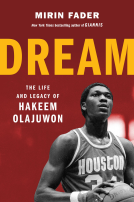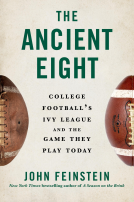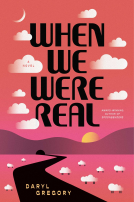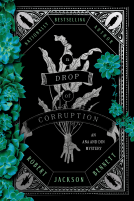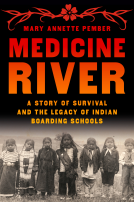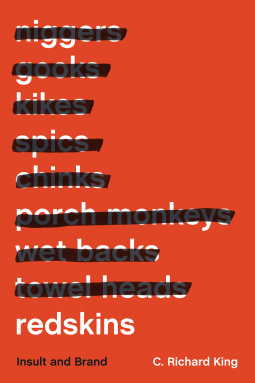
Redskins
Insult and Brand
by C. Richard King
This title was previously available on NetGalley and is now archived.
Send NetGalley books directly to your Kindle or Kindle app
1
To read on a Kindle or Kindle app, please add kindle@netgalley.com as an approved email address to receive files in your Amazon account. Click here for step-by-step instructions.
2
Also find your Kindle email address within your Amazon account, and enter it here.
Pub Date Mar 01 2016 | Archive Date Mar 01 2016
Description
The Washington Redskins franchise remains one of the most valuable in professional sports, in part because of its easily recognizable, popular, and profitable brand.
And yet “redskins” is a derogatory name for American Indians.
The number of grassroots campaigns to change the name has risen in recent years despite the current team owner's assertion that the team will never do so. Franchise owners counter criticism by arguing that the team name is positive and a term of respect and honor that many American Indians embrace. The NFL, for its part, actively defends the name and supports it in court.
Prominent journalists, politicians, and former players have publicly spoken out against the use of “Redskins” as the name of the team. Sportscaster Bob Costas denounced the name as a racial slur during a halftime show in 2013. U.S. Representative Betty McCollum marched outside the stadium with other protesters––among them former Minnesota Vikings player Joey Browner––urging that the name be changed.
Redskins: Insult and Brand examines how the ongoing struggle over the team name raises important questions about how white Americans perceive American Indians, about the cultural power of consumer brands, and about continuing obstacles to inclusion and equality. C. Richard King examines the history of the team's name, the evolution of the term “redskin,” and the various ways in which people both support and oppose its use today. King's hard-hitting approach to the team's logo and mascot exposes the disturbing history of a moniker's association with the NFL—a multibillion-dollar entity that accepts public funds—as well as popular attitudes toward Native Americans today.
Advance Praise
“This book is a must-read for academicians, policy makers, lawyers, and sports fans. King takes us to the root of American insensibilities, racist attitudes, and the invention of connotations, and in the end he offers hope and ways to recognize humanity.”—Manley A. Begay Jr. (Navajo), professor in the Department of Applied Indigenous Studies at Northern Arizona University
“King provides an insightful and engaging story of the meaning and power of a single word that has influenced people’s lives for nearly three centuries.”—Jay Coakley, author of Sports in Society: Issues and Controversies
“Moving and compelling, author Richard King’s carefully crafted words resonate with a deep humanity. . . . Sports executives, sports marketers, journalists, public policy makers, educators, and citizens need to read this book.”—Ellen J. Staurowsky, professor of sport management at Drexel University
“King’s book is a must-read for those who seek to understand the experience of contemporary activists as they challenge the use of Native American logos, epithets, and imagery as sports mascots.”—Jennifer Guiliano, author of Indian Spectacle: College Mascots and the Anxiety of Modern America
“If you’re still sitting on the fence, King’s impressive research and expert delineation of the controversy will convince you it’s time to rethink the name and change it now.”—Linda M. Waggoner, historian and author of Fire Light: The Life of Angel De Cora, Winnebago Artist
Available Editions
| EDITION | Hardcover |
| ISBN | 9780803278646 |
| PRICE | $24.95 (USD) |
Links
Featured Reviews
 Christine E, Reviewer
Christine E, Reviewer
ARC via Netgalley.
I really couldn’t care less about American football. Truly, couldn’t care less. Yet, I felt it was necessary to read this book because even I am aware of the various stances sport writers have taken over the name of Washington, DC’s football team. It’s like the only time I have like Bob Costas (I have never forgiven him for describing a cantering horse as flying like Pegasus).
King’s book focuses on the debate about the name of Washington’s team. For the record, in case you don’t know, the football team in Washington DC is called Redskins. This is a derogatory term for many Native Americans, and, according to King, it is basically the equivalent of the n word..
And really, you don’t even need to know the second part. It should be enough to know that it is an insult.
There has been an increasing vocal protest movement against racially incentive names for sports teams in the United States. Washington’s team is only the most obvious case in point. King’s book traces not only the meaning of the name, but also the various arguments presented by the name’s defenders and those who argue for the name’s removal.
King’s discussion of the terms history also includes how the term and where it is used can affect people. The name isn’t the sole issue, though it is a large part of it, but also is the use of the name while on land that was gained as the result war and/or resettlement as well as the taking of Native American children and forcing them into government Christian schools.
It is to King’s credit that he also looks at the motivations of those who want the name to stay. He does focus on the question of emotional ties to the name. While King clearly ranks these emotional attachments as less importance (and rightly so in my mind), he at least explores the ideas and the reasons for it. He also, then, quite deftly dismantles the arguments put forward by the team as well as the “we have Native Americans that like the name point”.
Quite frankly, you will most likely not want to root for Washington in any sporting event.
You also might find your view of such teams, like the Braves, changing as well.
At times, the book does get a little repetitive, and sometimes, I found myself wishing that at one point there was clear definition of difference and honoring. Is any Native American reference in a sports team an insult? I’m not asking to be smart nor do I mean to suggest that dressing up as a Hollywood Indian to support a team is not insulting; I seriously want to know. For instance, is there any way that the Washington (or any sports team for that matter) is legitimately honoring a Native American tribe and/or group? Is even asking the question insulting? In fairness to King, most likely this question has been addressed in his other books.
Another weak point is the section about the use of the term Redskin by non NFL sport teams. This chapter could have been more detailed, including the look of the term as used by high schools. This is made up by the section discussing the difference in view of those Native Americans who live on reservations versus those who either do not live or have lived away from reservations for a long period of time.
Seriously, this book should be required reading for any American sports fan.
 Rebecca T, Educator
Rebecca T, Educator
Passionate, if somewhat repetitive (as perhaps all moral calls to action are), argument about the poisonous nature of the Washington football team’s name. King argues that the name isn’t just about insulting Native Americans, but about white people owning them, propertizing their images and getting to decide what “counts” as a real problem, and that this ownership itself is one of the benefits the name provides in bolstering white supremacy. Claiming Indianness becomes a privilege of white masculinity, the mascot now a trophy. (Notably, the team was famously racist towards African-American players and the last in the NFL to integrate, with an anthem that not only stereotyped “braves on the warpath” and used mock pidgin but also urged the players to “fight for old Dixie.”) The name, and the images with which it is associated, combine a “paradoxical love of imagined Indians and a loathing of actual, embodied Indians that continues to this day.” That love is indifferent to the fact that, for example, the team currently plays on the ancestral territory of the Piscataway Tribe, or that DC is where the Patawomeck used to live. And as hard as the team tries to remove the stereotypes and leave only tribute, as late as December 2014, fans ran a “Scalp Out Cancer” fundraiser. When defending the name, team fans speak of their own hurt and pain—what King calls “playing Indian and playing the victim.” It’s their power to name and claim that’s threatened, and that’s all they see—as when fans consider protesters inauthentic because they don’t look “Indian” enough then claim that they have 1/16 Cherokee blood.
Along with the privileging of whiteness, King also discusses the harms directly done by stereotypical images: making Native Americans feel worse and triggering disparaging stereotypes in whites. I learned that owner Dan Snyder’s Original Americans Foundation, while launched to huge hoopla, appears to have gone completely dormant in terms of carrying out any charitable activities. I also learned more about the history of the term that arose “to accommodate an increasingly racialized European and European American view of the world which was imposed on a broad range of peoples who only gradually developed a sense of a collective identity in response to it.”
King also discusses Native Americans who don’t mind the team name, or like it. It’s a useful point: “how could there not be some American Indians who support it?” There’s a lot of diversity among any group of people; some don’t think about it; some have family connections to the team; and, “in a society that offers so few images of American Indians, … that has so fully erased living indigenous people in favor of imaginary versions of them, why wouldn’t some number of Native Americans come to accept, endorse, and even identify with” the team? King also suggests that Native Americans living on reservations experience racism differently than Native Americans living in large cities, who see the logo regularly and don’t have the insulating counter-narratives that might surround them in their communities. So, while three high schools with a majority Native American student body still use the same name, their communities and audiences wouldn’t use the stereotypes that white football fans do.
For decades, the nickname of the team that represents Washington DC in the National Football League has been a source of controversy. The name is considered offensive by many people. They consider the term “Redskins” a racial slur against Native Americans. The team and the league continually defend the use of the name, citing history and tradition as well as claiming that the term and logo depicting a Native American honors those people.
These arguments are debunked in this excellent book by C. Richard King, a professor of comparative ethnic studies at Washington State University. He explores the use of the name by the team, the history behind it and the various protests over it through the years.
The book is not one that presents both sides of the issue and lets the reader draw his or her own conclusions. It is a scholarly work that decries the use of the nickname, exposes the flaws in the usual statements defending the history and honor of the name, and explains why it should be considered a racial insult to Native Americans. King makes compelling arguments on each point he makes and will leave the reader feeling angry, bewildered and disgusted at the callousness of those who believe the name should still be used by the team.
It is also not an easy or quick read. The reader will have to carefully review each anecdote from Native Americans and also those of the defenders of the name, such as George Marshall and current owner Daniel Snyder. The stories they share, while they don’t realize it, actually make King’s argument to abolish the name stronger. King does an excellent job of breaking down the hidden racism and condescending nature of these arguments.
This book is one that should be read by anyone who cares about the use of this name by the team, no matter on what side of the issue the reader currently sits. It is compelling, persuasive and will certainly make the reader think about what is truly meant by the name “Redskins.”
I wish to thank University of Nebraska Press for providing a copy of the book via NetGalley in exchange for an honest review.
 Killian P, Reviewer
Killian P, Reviewer
Wow. This was a hella interesting read for me and I have so many conflicting feels after finishing. I'm condensing greatly here since this is a review of a book, not of my personal thoughts but let me just say that it's made me think, rethink, and go back and think again since I started it. I love it when books do that.
First, the writing is very well done and paced for the most part. There was a bit of heavy repetition of already covered material in one particular section, and the major over use of descriptive alliteration early on really got on my nerves (interestingly it all but disappeared about 2/3 though). Otherwise the chapters were clear and concise, using a nice mix of research and anecdotes to make arguments. There were one or two places where I could briefly feel the authors opinion on different subjects coming through, but I wasn't very bothered by this partly because it was so seldom that it happened. Otherwise, I don't have much of a picture of the author which is pretty amazing considering the kind of inflammatory material they were writing about.
King goes into so much more than just the question of whether the r*dskins should be the mascot of an NFL team. There is a deep exploration on what it means to be a native in the modern era, and how heavily this has been impacted and shaped by the hand of the conquerors centuries ago. There is also a significant chapter on how black/white relations in America have shaped the broader race conversations for natives and other ethnicities.
As for me, let me just say that my white privilege was checked, checked hard, and leave it at that. The points brought up here about the broader culture of America not having exposure to personal interactions with natives, or being educated on their history beyond the Trail of Tears are so very valid, but not an excuse. It's easy to not give much thought to something that isn't in front of you every day, but it's another thing entirely to take that education into your own hands.
Overall, a GREAT read and I would highly recommend it to literally anyone. There isn't one person in America who couldn't gain something from reading this.
